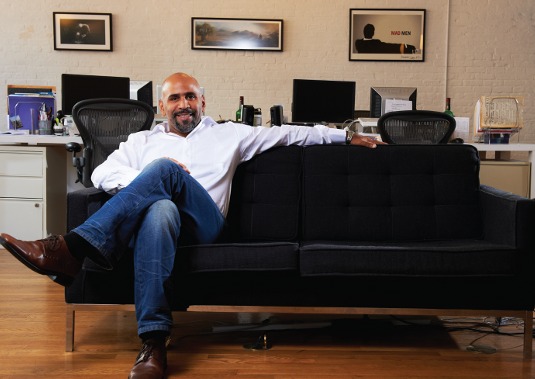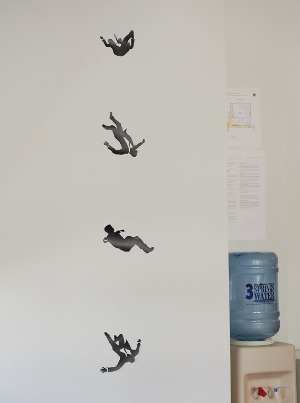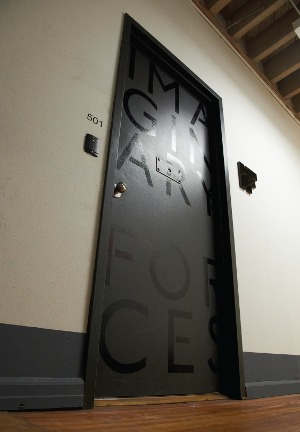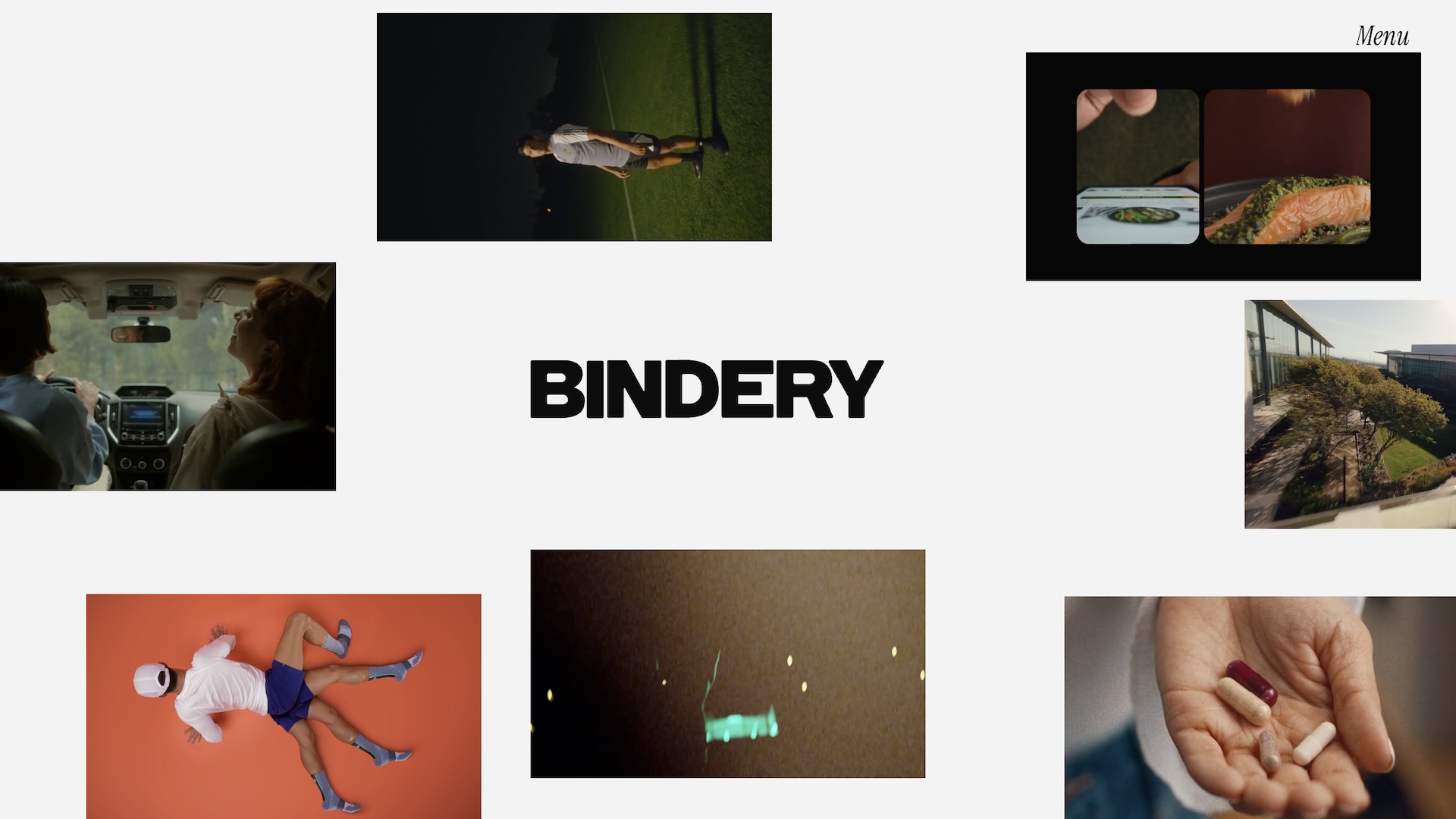Gabriel Marquez on challenges and change
Imaginary Forces executive producer Gabriel Marquez discusses how the agency negotiates the changing media landscape, and why it isn’t afraid to fight for what it wants.
Daily design news, reviews, how-tos and more, as picked by the editors.
You are now subscribed
Your newsletter sign-up was successful
Want to add more newsletters?

Five times a week
CreativeBloq
Your daily dose of creative inspiration: unmissable art, design and tech news, reviews, expert commentary and buying advice.

Once a week
By Design
The design newsletter from Creative Bloq, bringing you the latest news and inspiration from the worlds of graphic design, branding, typography and more.

Once a week
State of the Art
Our digital art newsletter is your go-to source for the latest news, trends, and inspiration from the worlds of art, illustration, 3D modelling, game design, animation, and beyond.

Seasonal (around events)
Brand Impact Awards
Make an impression. Sign up to learn more about this prestigious award scheme, which celebrates the best of branding.

Gabriel Marquez is speaking to the LA office. He does this a dozen times a day. Sometimes more. It's how Imaginary Forces bridges the gap - some 2,500 miles and a three-hour time difference - between the New York team and its West Coast counterpart. Marquez cuts an imposing figure in a light and spacious office set in the heart of sunny Manhattan. As executive producer and general manager, he oversees the creative studio and production company’s work in commercial advertising, digital and interactive platforms, feature films and film marketing, television, architectural spaces and global brands.
Imaginary Forces has grown considerably since its inception in 1996, with the current team consisting of over 70 creatives - directors, designers, animators, writers, editors, producers - spread across the two cities. Everyone strives to ensure the studios operate as one.
While both owners and most directors are LA-based, neither office takes priority over the other. This is not without its problems, but Marquez says the pros of having boots on the ground on both sides of the country outweigh the cons. And with staff constantly flying between the two offices, a single-studio community spirit remains strong.
"In this business," Marquez says, "there's never a shortage of challenges. But we're still here, 17 years later, so we must be doing something right. I think, while projects, schedules and budgets are always tough, the biggest challenge is the constant process of reinvention - to stay cutting edge, stay relevant."
"From Apple to a mom-and-pop shop, there are very few companies that look the same way as they did 17 years ago. That process of change - whether it's in the type of work you pursue, your business model, your team, your culture - can be really difficult. But good design thinking is here to stay."

Imaginary Forces was founded by Kyle Cooper, Peter Frankfurt and Chip Houghton. The trio were colleagues at advertising agency R/GA before going it alone. The studio made its name in film title design, something it continues to be a leader in today. After earning credits on Flubber, the Mummy and Spider-Man, to name just a few, Cooper left in 2003 to start his own creative agency. But Marquez remembers those early days as a period of real innovation.
"At that time, film title design was a field that’d been somewhat dormant for a few years. That early work got us a lot of attention for being quite different to what was being done elsewhere, and moving the form in a different direction."
Daily design news, reviews, how-tos and more, as picked by the editors.
A proactive approach
One of the secrets to Imaginary Forces' enduring success is its fearless approach to taking on new work, and its willingness to accept a diverse mix of clients. This requires lots of thorough research up-front - who the client is, the kind of work it does - so the studio understands exactly what it is they want or need. In other cases, with clients the studio knows well or ones that offer a detailed brief, it can be a more iterative process. What's more, Imaginary Forces isn't backwards in coming forwards.

"We try to be extremely proactive about seeking out new business in areas where we feel like we can be effective," Marquez says. "We're discerning about the type of work we take on, for sure, but that doesn't preclude us from aggressively seeking out the work we want to do."
The studio values up-front communication about the creative process and everyone's expectations at the begining of a relationship with any new client. "We always give clients a firm commitment to finding the best solution for them and their needs," says Marquez. This straightforward approach, they find, goes a long way to easing the anxiety that comes with venturing into new and unknown territories.
"Even inexperienced clients are typically pretty knowledgeable about their business and its goals; they just don't necessarily have the tools to achieve them. That's why they’ve come to us. So helping them understand what that process will be, and how and why it will culminate in a successful outcome, is enormously helpful," says Marquez. "It also facilitates a more productive relationship going forward, since the client will typically have an easier time planning in advance and knowing that they’ll have a problem-solving partner in the future."
The voice of experience
In a marketplace that's considerably more crowded than at the time when Imaginary Forces was founded, coupled with a markedly different economic climate, Marquez says clients today have more ambitious creative goals than ever before. "We have to be constantly looking at how we do things, how we stay creative, to figure out how to do them efficiently in order to stay on top of our game. Demanding clients can actually be quite helpful, because often that means they know what they want. So, if we're doing our job, we can separate the wheat from the chaff quickly. It's rare that a client is more demanding of the work than we are."
It's an ethos that's resulted in a client list any studio would be envious of, across Imaginary Forces' five main categories of output - commercials, film, broadcast, experience design, and digital and gaming. Recent folio highlights include: an explosive, hand-drawn-style CG animation for Nike's Dynamic Fit running shoe; "monsters, machines and their monumental feats" in the main and end titles for Warner Brothers blockbuster Pacific Rim; designing and creating the animated graphic elements for the MTV Movie Awards 2013; outdoor, print, video and Facebook campaigns for the National History Museum's new Dinosaur Hall; and a suspenseful TV teaser for video game developer Ubisoft’s Splinter Cell: Blacklist.

Surprisingly for a studio of Imaginary Forces' standing, and a team of its size, Marquez highlights recruitment as a possible area for improvement. While he considers its current roster to be a particularly talented one, he says that came about "as much by luck as by clever and strategic recruiting." For him, it's more important to hire talent than it is to look for experience, which is something than can easily be built up on the job.
"The advice I'd give to folks starting out in this business is the same I give to students going into virtually any industry: you have to be proactive about your professional development. The tools for an autodidact are better than ever, so don't sit back on your formal education. The tools and rules change so quickly that the ability to learn new skills is as critical as the skills themselves," he explains. "Another would be to, as I was told, find your creativity. Not every gig is going to be your dream gig. So you have to be able to find ways to extract value from all your experiences."
Moving forwards
Projects Marquez cites as being particularly valuable experiences for Imaginary Forces include its work for TV series Mad Men and for a Georgian news channel, though for very different reasons. Its project for the Lionsgate show Mad Men is one of the most recognisable in recent television history - an allegoric sequence as stylish as the characters it introduces. The project won the 2008 Emmy Award for Outstanding Title Design.

Building a broadcast package for a news network based in Georgia's capital Tbilisi was equally rewarding. The channel was founded with the aim of being more critical of the national government than the existing state-run media. "While the work was fairly conventional, in terms of broadcast deliverables," Marquez says, "the context of a group of people trying to launch a more democratic news organisation in a less open society was a really interesting experience."
Marquez is staying tight-lipped about future projects, but says a breakdown of technical barriers to entry, changing media habits of consumers and fluctuating economic environments mean Imaginary Forces is working in a market that changes month by month. As a result, it's virtually impossible to plan too far ahead. The key, he says, is adaptability. "Lines between platforms, skills, fields of business… all of those have blurred to the point that they’re almost entirely erased. That's incredibly exciting, but it's also very challenging. We need to be more nimble than ever before. We're absolutely focused on what's on the horizon. That said, we also need to be mindful of versatility so we don’t get too attached to one way or sector that quickly becomes dated."
In the future, Marquez predicts a continuing convergence of media platforms, with interactivity becoming ever-more predominant. "As mobile devices increasingly become the point of entry into the digital universe, and traditional media continues to migrate there in response, our work will have to respond. So the creation of content and experiences designed for that space, rather than retrofitted to it, will be a big part of what we do. Video games are another new, significant and growing part of our business. And, I hope, we'll be using the opportunity to use the brave new world as a sandbox for developing our own projects."

Words: Gary Evans
This article originally appeared in Computer Arts issue 219.
Liked this? Read these!
- Create a perfect mood board with these pro tips
- Discover how to become a creative director
- The best TV commercials in the world, ever!
Tell us what you think of Imaginary Forces' work in the comments!

The Creative Bloq team is made up of a group of art and design enthusiasts, and has changed and evolved since Creative Bloq began back in 2012. The current website team consists of eight full-time members of staff: Editor Georgia Coggan, Deputy Editor Rosie Hilder, Ecommerce Editor Beren Neale, Senior News Editor Daniel Piper, Editor, Digital Art and 3D Ian Dean, Tech Reviews Editor Erlingur Einarsson, Ecommerce Writer Beth Nicholls and Staff Writer Natalie Fear, as well as a roster of freelancers from around the world. The ImagineFX magazine team also pitch in, ensuring that content from leading digital art publication ImagineFX is represented on Creative Bloq.
